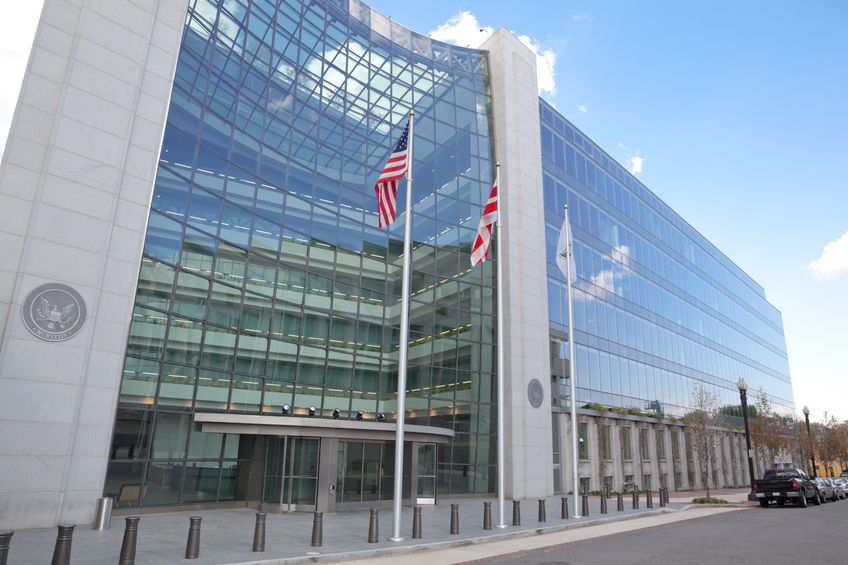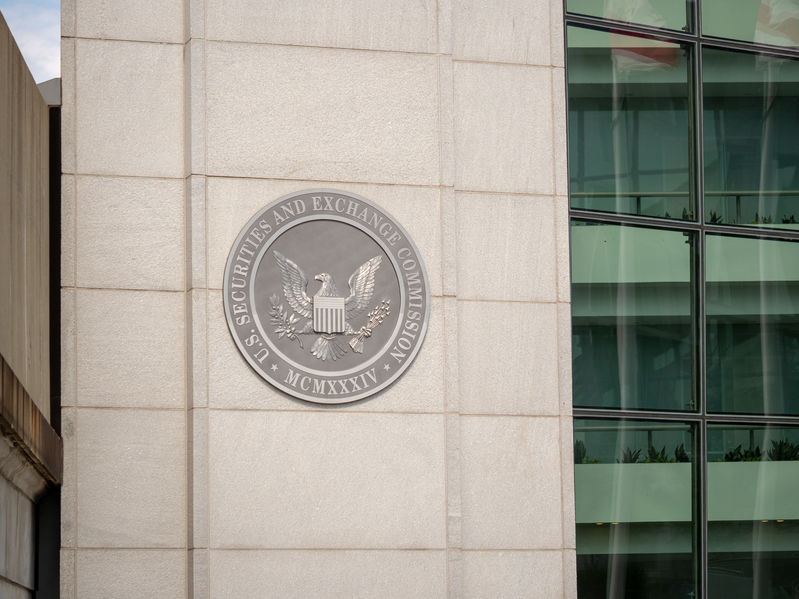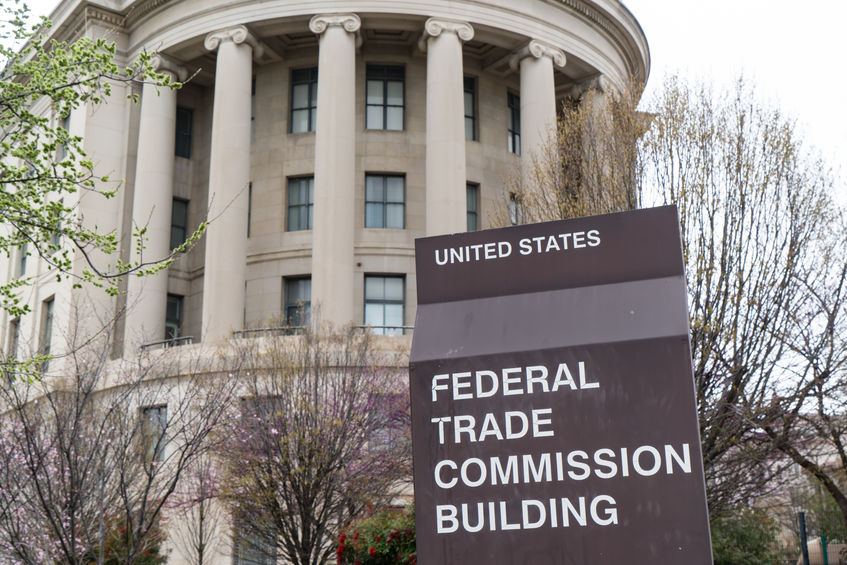Legal Briefs
Sketchy Virginia SBA Loan Brokers Indicted
August 26, 2020Ronald A. Smith and Terri Beth Miller, owners of Virginia-based Business Development Group (BDG), an SBA loan brokerage, were indicted this month over an advance-fee scheme in which many customers are alleged to have paid money to obtain SBA loans but did not in fact get them.
As part of the scheme, defendants are alleged to have made many false and misleading representations to prospective borrowers including that:
- BDG was a large, multi-state company
- BDG was headquartered at the Trump Building in New York City and had an additional business in Las Vegas
- BDG has assisted certain named companies in obtaining SBA loans
- BDG was a business established in 2005 or earlier
- BDG was affiliated with the SBA
- BDG had relationships with banks across the nation that allowed it to facilitate the loan approval process with SBA lenders in a customer’s area by utilizing a “Lender Linker” made up of the most preferred SBA lenders in the country
- BDG had a program that included a “Powerful Online Grant Writer Interface Service” that was directly connected to the federal government and “handled everything from A to Z in Finding, Writing, Submitting and Securing Grants”
- BDG offered a money back guarantee
- BDG won the 2016 Best of Manhattan Business Award for Business Development Software and Services
BDG was really just an internet-based business whose goal was to obtain money through fraudulent pretenses and promises, prosecutors contend.
A copy of the grand jury indictment can be obtained here.
CEO Of Online Lender Arrested For PPP Fraud
August 19, 2020 Sheng-wen Cheng, aka Justin Cheng, the CEO of Celeri Network, was arrested on Tuesday by the FBI. Celeri offers business loans, merchant cash advances, SBA loans, and student loans.
Sheng-wen Cheng, aka Justin Cheng, the CEO of Celeri Network, was arrested on Tuesday by the FBI. Celeri offers business loans, merchant cash advances, SBA loans, and student loans.
Cheng applied for over $7 million in PPP funds, federal agents allege, on the basis that Celeri Network and other companies he owns had 200 employees. In reality he only had 14 employees, they say.
Cheng succeeded in obtaining $2.8M in PPP funds but rather than use them for their intended lawful purpose, he bought a $40,000 Rolex watch, paid $80,000 towards a S560X4 Mercedes-Maybach, rented a $17,000/month condo apartment, bought $50,000 worth of furniture, and spent $37,000 while shopping at Louis Vuitton, Chanel, Burberry, Gucci, Christian Louboutin, and Yves Saint Laurent.
He also withdrew $360,000 in cash and/or cashiers checks and transferred $881,000 to accounts in Taiwan, UK, South Korea, and Singapore.
This, of course, is all according to the FBI. Statements made to Law360 indicate that Cheng maintains his innocence.
A press release published by Celeri late last year said that the company had raised $2.5M in seed funding that valued the company at $11M.
Fintech Companies Settle “True Lender” Lawsuit With Colorado Attorney General
August 19, 2020 Avant, Marlette Funding, and several banks consented to a settlement with the Colorado Attorney General earlier this month to close the books on litigation that has gone on for more than three years.
Avant, Marlette Funding, and several banks consented to a settlement with the Colorado Attorney General earlier this month to close the books on litigation that has gone on for more than three years.
The lawsuits alleged that Avant and Marlette, who enjoyed bank partnerships, were themselves not covered by federal bank preemption and that they had violated the Uniform Consumer Credit Code of the state by among other things, charging excessive costs to consumers.
After a lengthy battle, Avant, Marlette, WebBank, and Cross River Bank entered into a joint settlement agreement with the Colorado Attorney General that prohibits the fintech companies from charging more than 36% APR in the State of Colorado, along with requiring that the fintech companies maintain a state lending license and engage in a long list of new and redundant measures of compliance.
The SEC Already Suffered a Major Defeat in the Par Funding Battle – But Who is the Real Loser?
August 8, 2020 While the news media, regulatory agencies, and law enforcement are high-fiving each other over the course of events in the Par Funding saga (a lawsuit, a receivership, an asset freeze, and an arrest), there lies a major problem: The SEC already suffered a major defeat.
While the news media, regulatory agencies, and law enforcement are high-fiving each other over the course of events in the Par Funding saga (a lawsuit, a receivership, an asset freeze, and an arrest), there lies a major problem: The SEC already suffered a major defeat.
On July 28th, rumors of a vague legal “victory” for Par Funding circulated on the DailyFunder forum. The context of this win was unknowable because the case at issue was still under seal and nobody was supposed to be aware of it.
Cue Bloomberg News…
In December 2018, Bloomberg Businessweek published a scandalous story about a Philadelphia-based company named Par Funding. And then not a whole lot happened… that is until Bloomberg Law and Courthousenews.com published a lengthy SEC lawsuit less than two years later that alleged Par along with several entities and individuals had engaged in the unlawful sale of unregistered securities.
 At the courthouse in South Florida, those documents were sealed. The public was not supposed to know about them and deBanked could not authenticate the contents of the purported lawsuit through those means. According to The Philadelphia Inquirer, the mixup happened when a court clerk briefly unsealed it “by mistake” thus alerting a suspiciously narrow set of news media to the contents. deBanked was the first to publicly point this out.
At the courthouse in South Florida, those documents were sealed. The public was not supposed to know about them and deBanked could not authenticate the contents of the purported lawsuit through those means. According to The Philadelphia Inquirer, the mixup happened when a court clerk briefly unsealed it “by mistake” thus alerting a suspiciously narrow set of news media to the contents. deBanked was the first to publicly point this out.
In court papers, some of the defendants said that they learned of the lawsuit that had been filed under seal on July 24th from “news reports.” Bloomberg Law published a summary of the lawsuit on its website in the afternoon of July 27th.
“It is fortuitous that the Complaint was initially published before it was sealed,” an attorney representing several of the defendants wrote in its court papers. “Otherwise, [The SEC] would have likely accomplished its stealth imposition of so-called temporary’ relief, that would have led to the unnecessary destruction of a legitimate business.”
 The day after this, on July 28th, a team of FBI agents raided Par Funding’s Philadelphia offices as well as the home of at least one individual. Rumors about the office raid landed on the DailyFunder forum just hours later, along with links to the inadvertently public SEC lawsuit now circulating on the web.
The day after this, on July 28th, a team of FBI agents raided Par Funding’s Philadelphia offices as well as the home of at least one individual. Rumors about the office raid landed on the DailyFunder forum just hours later, along with links to the inadvertently public SEC lawsuit now circulating on the web.
The New York Post caught wind of the story and published a photo of an arrest that had taken place fifteen years ago, creating confusion about what, if anything, was happening. Nobody, was in fact, arrested.
The SEC lawsuit was finally unsealed on July 31st, along with the revelation that Par Funding and other entities had been placed in a limited receivership pursuant to a Court order issued just days earlier. The receivership order was a massive blow to the SEC. It failed to obtain the most important element of its objective, that is to have the court-ordered right to “to manage, control, operate and maintain the Receivership Estates.” The SEC specifically requested this in its motion papers but was denied this demand and others by the judge who leaned in favor of granting the Receiver document and asset preservation powers rather than complete control of the companies.
The language of the Court order was interpreted differently by the Receiver, who immediately fired all of the company’s employees, locked them out of the office, and then suspended all of the company’s operations which even prevented the inbound flow of cash to the company (of which in the matter of days amounted to nearly $7 million). The SEC did successfully secure an asset freeze order.
In court papers, Par Funding’s attorneys wrote that: “The Receiver’s and SEC’s actions are ruining a business with excellent fundamentals and a strong financial base and essentially putting it into an ineffective liquidation causing huge financial losses. In taking this course of action against a fully operational business, the key fact that has been lost by the SEC, is that their actions are going to unilaterally lead to massive investor defaults.”
 The Receiver, in turn, tried to fire Par Funding’s attorneys from representing Par. Par’s attorneys say that the Receiver has communicated to them that it is his view “that he controls all the companies.”
The Receiver, in turn, tried to fire Par Funding’s attorneys from representing Par. Par’s attorneys say that the Receiver has communicated to them that it is his view “that he controls all the companies.”
“The SEC is simply trying to drive counsel out of this case, as an adjunct to all the other draconian relief that they insist must be employed to ‘protect the investors,'” Par’s attorneys told the Court. “Due Process is of no regard to the SEC.”
As lawyers on all sides in this mess assert what is best for “investors,” seemingly lost is the collateral damage that is likely to be thrust on Par’s customers. The Philadelphia Inquirer has repeated the SEC’s contention that Par made loans with up to 400% interest. Bloomberg News has called Par a “lending company” whose alleged top executive is a “cash-advance tycoon.”
A review of some of Par’s contracts, however, indicate that they often entered into “recourse factoring” arrangements. “This is a factoring agreement with Recourse,” is a statement that is displayed prominently on the first page of the sample of contracts obtained by deBanked.
Parallels between the business practices of Par Funding and a former competitor, 1 Global Capital, have been raised at several junctures in the SEC litigation thus far. But some sources told deBanked that in recent times, Par has been offering a unique product, one that is likely to create disastrous ripple effects for hundreds or perhaps thousands of small businesses as a result of the Receiver’s actions (even if well-intentioned).
The “Reverse”
Par offered what’s known as a “Reverse Consolidation,” industry insiders told deBanked. In these instances Par would provide small businesses with weekly injections of capital that were just enough to cover the weekly payments that these small businesses owed to other creditors.
One might understand a consolidation as a circumstance in which a creditor pays off all the outstanding debts of a borrower so that the borrower can focus on a relationship with a single lender. In a “reverse” consolidation, the consolidating lender makes the daily, weekly, or monthly payments to the borrower’s other creditors as they become due rather than all at once. Once the other creditors have been satisfied, the borrower’s only remaining debt (theoretically) is to the consolidating lender.
 Par does not appear to have offered loans but sources told deBanked that Par would provide regular weekly capital injections to businesses that could not afford its financial obligations otherwise. Par, in essence, would keep those businesses afloat by making their payments.
Par does not appear to have offered loans but sources told deBanked that Par would provide regular weekly capital injections to businesses that could not afford its financial obligations otherwise. Par, in essence, would keep those businesses afloat by making their payments.
That all begs the question, what is going to happen to the numerous businesses when Par breaches its end of the contract by failing to provide the weekly injections?
As the Receiver makes controversial attempts to assert the control it wished it had gotten (but didn’t), the press dazzled the public on Friday with the announcement that an executive at Par Funding had been arrested on something entirely unrelated, an illegal gun possession charge. The FBI discovered the weapons while executing a search warrant on July 28th but waited until August 7th to make the arrest.
It remains to be seen what the 1,200 investors will recover in this case or what will become of the Receiver in the battle for control, but sources tell deBanked that the authorities are all fighting over the wrong thing.
They should all be asking “what’s going to happen to the small businesses when their weekly capital injection doesn’t come in the middle of a pandemic?”
Par Funding Files Strong Response to SEC’s TRO After “Lockout”
August 4, 2020 Par Funding’s attorneys at Fox Rothschild filed a strong response with the Court over the apparent actions taken by the Receiver to lock out its employees and suspend ACH debits, the docket shows.
Par Funding’s attorneys at Fox Rothschild filed a strong response with the Court over the apparent actions taken by the Receiver to lock out its employees and suspend ACH debits, the docket shows.
“On the afternoon of July 28, the SEC advised that Mr. Stumphauzer (the appointed receiver) would cause the immediate dismissal of all the employees of the businesses and that no employees of the business would be permitted to enter the premises – leading to over 100 employees being barred from the business premises for the last week despite the fact that thousands of merchants around the country rely on ongoing communication with CBSG to ensure the ongoing viability of their business operations.”
It continues…
“To date, not a dollar has been taken in by the Receiver to pay investors, and they have not been paid. The Receiver’s and SEC’s actions are ruining a business with excellent fundamentals and a strong financial base and essentially putting it into an ineffective liquidation causing huge financial losses. In taking this course of action against a fully operational business, the key fact that has been lost by the SEC, is that their actions are going to unilaterally lead to massive investor defaults.”
You can view the entire argument here.
Par’s attorneys are expected to file a more comprehensive opposition by the end of the week.
deBanked did not reach out to any party for comment given the unlikelihood that any would be shared on pending litigation.
Did Sealed Case Get Leaked on Bloomberg News Site?
August 4, 2020 A series of Bloomberg News stories in 2018 appear to have put a handful of companies in the cross-hairs of regulators, recent legal filings indicate, and Bloomberg is enjoying unusual status in the saga.
A series of Bloomberg News stories in 2018 appear to have put a handful of companies in the cross-hairs of regulators, recent legal filings indicate, and Bloomberg is enjoying unusual status in the saga.
One example is the copy of a federal lawsuit brought by the SEC that appeared on Bloomberglaw.com on Monday, July 27th. A summary of the lawsuit and the full 58-page complaint were broadcast through the Bloomberg-branded website in Google News and were quickly picked up by industry observers who pointed out that the complaint referenced an ongoing undercover investigation by law enforcement agencies.
It was an unusual reveal.
Except when deBanked tried to authenticate the documents by attempting to retrieve an original copy through the court system, we were unsuccessful because the entire case was sealed.
The case and an identical copy of the complaint, which Bloomberg had been circulating all week, were finally unsealed on Friday, July 31st. The case number was the only thing different.
The odd sequence of events suggests that Bloomberg Law may have inadvertently blown the lid on a case almost a week before anyone was supposed to know about it, including the defendants. Over the weekend, one defendant was upset that he had not been able to access the docket until the evening of July 31st. That was 4 days after the world had already gotten a glimpse of it.
FTC Commissioner Rohit Chopra on Merchant Cash Advances
August 3, 2020
Following recent lawsuits filed by the FTC, Commissioner Rohit Chopra made the following statements earlier today in an announcement about merchant cash advances:
As the Commission proceeds into litigation in these matters and further studies this market, I hope that we will uncover additional information about business practices in this opaque industry. In particular, we should closely scrutinize the marketing claim that these payday-style products are “flexible,” with payments contingent on the credit card receivables of a small business. In reality, this structure may be a sham, since many of these products require fixed daily payments, and lenders can file “confessions of judgment” upon any slowdown in payments, with no notice or due process for borrowers.
This raises serious questions as to whether these “merchant cash advance” products are actually closed-end installment loans, subject to federal and state protections including anti-discrimination laws, such as the Equal Credit Opportunity Act, and usury caps. The stakes are high for millions of small businesses.
New York State Legislators Resume Push of Commercial Finance Disclosure Bill
July 17, 2020 A bill (A10118A / S5470B) intended to create uniform disclosures for comparison purposes while also placing control of the commercial finance industry under the purview of the superintendent of the New York Department of Financial Services, is moving forward.
A bill (A10118A / S5470B) intended to create uniform disclosures for comparison purposes while also placing control of the commercial finance industry under the purview of the superintendent of the New York Department of Financial Services, is moving forward.
The March 2020 initiative was picked back up this week by members of the Assembly where it passed the banking committee and codes committee on a unanimous and bipartisan basis.
“When enacted, this bill will become the strongest commercial lending disclosure law in the country that covers all commercial financing products,” wrote Ryan Metcalf, Head of US Regulatory Affairs and Social Impact at Funding Circle, on LinkedIn. “It includes strong provisions that ensures enforcement and eliminates loopholes that will prevent gaming & abuse, & requires APR to be disclosed for all products.”
Metcalf further wrote that they and the Responsible Business Lending Coalition (RBLC) have been working diligently with NY state legislators for the last year or so to craft this bill. Among RBLC’s membership is Fundera, Nav, Lendistry, LendingClub and about 4 dozen other companies.





























